International Welding Engineer
École Supérieure du Soudage et de ses Applications (ESSA) - 09/20 -> 07/21 - Thionville, France ![]()
 Context: ESSA is a public school from the Group Institut de Soudure, whose worldwide known formation trains technicians (IWT) and engineers (IWE) to the field of welding.
Context: ESSA is a public school from the Group Institut de Soudure, whose worldwide known formation trains technicians (IWT) and engineers (IWE) to the field of welding.The fomation begins after a master degree.
- The training includes various modules about welding, such as:
- Skills in common industrial welding processes and particular processes
- Knowledge in materials behaviours under mechanical and thermic conditions
- Knowledge in metallurgy and welding
- Skills in mechanical conception, calculus of welded assemblies, codes & normes
- Skills in fabrication, inspection, controls, health & safety
Training: The degree ESSA IWE offers a full view of the industrial welding field, divided in relevant modules:
- Mechanical training:
- Strength of materials
- Electricity applied on welding
- Conception and calculus on welded assemblies
- Fatigue and mechanical failure
- Metalwork constructions
- Numerical simulation of welding
- Metallurgy training:
- Metallurgy applied on welding
- Metallurgy of steels and nonferrous materials
- Mechanical tests
- Chemical metallurgy and corrosion
- Creep and superficial quenching
- Fabrication & controls
- Welding process training:
- Heat treatments
- Destructive and nondestructive controls
- Brazing, submerged arc welding, TIG, MIG/MAG, SMAW
- Resistance welding, LASER, EBW, FSW, plasma
- Special processes, automatisation & robotisation
- Thermoplastics, ceramics, composites
- HSE, codes and normes
Internship:
Long term project:
* * *
General Engineer, Mechanical, Materials & Technological Innovations
Université de Technologie de Compiègne (UTC) - 09/13 -> 07/17 - Compiègne, France ![]()
 Context: The UTC is a famous engineering school, offering a general training in engineering & Ph.D.
Context: The UTC is a famous engineering school, offering a general training in engineering & Ph.D.The engineering studies is a 5 years training that can be chosen just after high school or after a bachelor or preparatory school (french particularity, meaning the training begin at the 3rd year).
- The trainings that can be chosen are:
- Mechanical Engineering (including Mechanical & Mechanical Systems)
- Biological Engineering
- Processes Engineering
- Urban Systems Engineering
- Computer Engineering
Training: The Mechanical Engineering course is composed of a main training and a speciality students have to choose after the first year. The one I chose is called Materials & Technological Innovations (MTI). This speciality is focused towards Design, R&D, Research about the materials and their behaviours.
- General training:
- Magnetism
- Electric motors
- Electronics
- Programming in C
- Statistics & probabilities
- Quality management
- Mechanical training:
- General mechanics
- Solid Mechanics
- Continuum mechanics
- Modelization et CAD (Catia V5, Creo, Solidworks)
- Finite elements
- Cinematic & dynamic
- Speciality MTI:
- Materials: metals, polymers, composites
- Fabrication processes
- Controls & characterization of the materials
- Materials behaviours under mechanical & thermic stresses
- Corrosion
- RDM & RTM
- Projects management
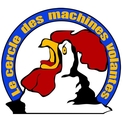 Projects: During the training, several projects had been suggested:
Projects: During the training, several projects had been suggested:
- Modelization of a metronome through CREO
- Study about biomimetism
- Study about the viability of innovative materials for intervertebral discs applications
- Study about polymer properties used in golf balls
- Prototyping of composite elements & their study
- Modelization of engine's elements of a Caudron C.430 (aircraft)
This project was meant to last several years, 6 months of work per student, and is divided in different sub-topics: modeling of the fuselage, modeling of the engine, research of suppliers, investors, etc.
My part was the modeling of the engine. I was the first and only student on this topic. The goal was to modelize all the parts of the engine for subcontracting the fabrication of a new engine because there is no more left undamaged. An organizational chart was also made in order to ease the transfer to future students on this topic. The focus was made on the mobile parts of the engine such as the links, the shaft, the pistons, the rockers, etc.
A sample of the parts made on Catia V5:
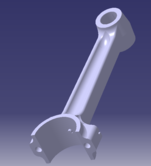



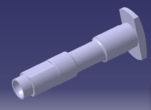

* * *
Mechanical Engineer
Dundalk Institute of Technology (DkIT) - 09/12 -> 07/13 - Dundalk, Ireland ![]()
 Context: L'Dundalk Institute of Technology is a college with several trainings (biology, engineering, law, art, computer science, etc.) and offering many international partnerships through the Erasmus program.
Context: L'Dundalk Institute of Technology is a college with several trainings (biology, engineering, law, art, computer science, etc.) and offering many international partnerships through the Erasmus program.This year of study was an Erasmus partnership between DkIT and the University of Caen, Normandy, France, in which I had just finished a degree in Physical Measurements.
Training: The Mechanical Engineering training was a first step for me in a training focused on mechanics and industrial conception & production.
- Courses list:
- Mechanics
- Mathematics
- Thermodynamic & energies
- Materials behaviours
- CAD (SOLIDWORKS)
- Projects management
- Management
* * *
Technician in Physical Measurements, Instrumentation
Université de Caen Basse-Normandie (UniCaen) - 09/10 -> 07/12 - Caen, France ![]()
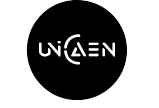 Context: The University of Caen is a college with various trainings (biology, mechanics, electronics, law, computer science, etc.) at different levels (bachelor, master, Ph.D, engineering, etc.).
Context: The University of Caen is a college with various trainings (biology, mechanics, electronics, law, computer science, etc.) at different levels (bachelor, master, Ph.D, engineering, etc.).This training is a good compromise between getting a degree and the possibility of scaling up towards a master or engineering degree.
Training: The Physical Measurements training is a training in general physics and chemistry, theoretical & practical. It allows to apply all the theoretical courses on practical projects, that are relatable to the industry.
2 spécialities can be chosen at the end of the training: Instrumentation or Materials & Physicochemical controls.
2 spécialities can be chosen at the end of the training: Instrumentation or Materials & Physicochemical controls.
* * *
Baccalauréat in science, biology (≠ engineering systems), specialized in Mathematics
Middle & High School St François-Xavier (SFX) - 09/04 -> 07/10 - Vannes, France ![]()
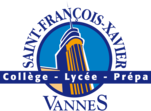 Context: TheMiddle & High School St François-Xavier is a famous school from Britany offering quality courses and a particular activity system (quite rare regarding the french education system).
Context: TheMiddle & High School St François-Xavier is a famous school from Britany offering quality courses and a particular activity system (quite rare regarding the french education system).After getting to high school, you can choose an activity in order to develop yourself in another way than just the tradiontinal scolar way. These activities can be sports (kayak, gym, climbing, etc.), arts (theater, dancing, music, etc.) or brain activities (research club, patrimony, etc.).
Training: Besides the basic training of french schools, optional courses can be also chosen. I chose to take:
- English (Lv.1)
- German (Lv.1)
- European german
- Latin
- Music
- Surfing

